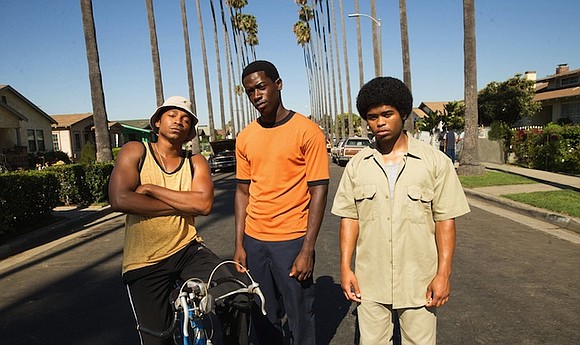Drug War Fights Losing Battle in TV Dramas
CNN/Stylemagazine.com Newswire | 7/7/2017, 12:29 p.m.
By Brian Lowry
CNN
(CNN) -- The History channel recently aired "America's War on Drugs," an eight-hour documentary examining the decades-long futility of the drug war. Yet at virtually every turn, that case has already been presented in scripted dramas.
Drug dealers remain go-to bad guys in TV and movies. Dating back to David Simon's landmark HBO drama "The Wire" and miniseries "The Corner," though, television has drilled into the hopelessness of law enforcement's efforts -- depicting what amounts to a giant game of Whac-a-Mole, where cutting off from one spigot simply opens another.
The condemnation of the policy, moreover, is often conveyed more poignantly through dramas like "The Wire," which can personalize character arcs and put faces -- even if they're fictional -- on the statistics.
A bleak new FX drama premiering this week, "Snowfall," seeks to join this tradition. The show hearkens back to the "Just Say No" era, chronicling the rise of crack cocaine in the 1980s.
Another series set in that period, Netflix's "Narcos," spent two seasons tracking down Pablo Escobar, only to see new players fill the void once Colombian authorities gunned down the drug kingpin in 1993.
"Breaking Bad" and its prequel "Better Call Saul" have also shown the ruthlessness associated with the drug war. Unlike most shows, they deal less with the glamor and fast money of drugs than its banality -- treating it, as an Esquire piece observed, like "just another business," with evading the law as just one of the particular operating costs of the enterprise.
Skepticism about the drug war's efficacy reflects as much of a shift in the playing field for TV drama as politics. Most of the programs cited air on networks that pride themselves on offering more ambitious and nuanced storytelling than, say, standard network crime shows that slap handcuffs on a perpetrator by the hour's end.
Still, this lacerating critique is noteworthy when stemming the flow of drugs is among the promised benefits of the Trump administration's proposed border wall, while Attorney General Jeff Sessions has advocated harsher drug sentencing policies.
"The Wire" creator Simon, who witnessed the drug war as a reporter in Baltimore, has stated that increasing enforcement and incarceration is "draconian, and it doesn't work," as he said during a 2015 conversation with President Obama, a fan of the show. "What drugs don't destroy, the war against them is ripping apart."
A recurring message from such dramas is that as long as demand persists -- and with it, big money peddling contraband -- someone will always be tempted to feed it.
"Narcos" executive producer Eric Newman said during an interview last year that the show takes a critical view of drug policies that seek to "kill the supplies and do nothing about the demand." As for continuing without Escobar in the third season, he added, "We plan on stopping when cocaine stops."
The drug war, of course, goes back further than the Reagan era's "Just say No" campaign. "America's War on Drugs" features President Nixon declaring drug abuse "public enemy No. 1" in the early 1970s. As DEA agent Celerino Castillo explains in the documentary, purging drugs remains an uphill battle because "America is more addicted to drug money than they are addicted to drugs."
Television remains pretty addicted to drug dealing's dramatic possibilities, creating an enticing backdrop for stories filled with money, violence and power. This month brings another in Netflix's "Ozark," starring Jason Bateman as a money manager drawn into laundering cash for a cartel.
Viewed collectively, though, these bold, nuanced dramas have reinforced questions about whether a "drug war" can ever really be won, especially when each new skirmish and declaration feels, in TV terms, like a rerun.







